 'Jin' named the word of the year by cross-strait netizens
'Jin' named the word of the year by cross-strait netizens Chinese scientific expedition goes to build new Antarctica station
Chinese scientific expedition goes to build new Antarctica station
 Chinese naval escort fleet conducts replenishment in Indian Ocean
Chinese naval escort fleet conducts replenishment in Indian Ocean 17th joint patrol of Mekong River to start
17th joint patrol of Mekong River to start China's moon rover, lander photograph each other
China's moon rover, lander photograph each other Teaming up against polluters
Teaming up against polluters
WASHINGTON, Dec. 30 -- Japanese Prime Minister Shinzo Abe's recent trip to the controversial Yasukuni shrine is "a serious foreign policy mistake" that poses diplomatic problems for the United States and threatens allied security interests in Asia, U.S. analysts said on Monday.
The trip is "a serious foreign policy mistake that threatens allied security interests in Asia," said Bruce Klingner, a senior research fellow at the Washington-based Heritage Foundation think tank.
"Although Abe expressed 'severe remorse' for Japan's historic actions, he should have realized that the visit was needlessly provocative and would exacerbate already strained relations with the United States and South Korea," Klingner told Xinhua.
Abe's visit, which came on the first anniversary of his premiership, has sparked outcries from countries suffering from Japan's war atrocities and around the world, as the shrine in central Tokyo honors Japan's war dead, including 14 Class A war criminals from the World War II.
The visit was the first by a sitting Japanese prime minister since former Prime Minister Junichiro Koizumi paid his respects there in 2006.
During the past year, Abe has questioned some accounts of Japan 's wartime conduct and was trying to lead Japan away from its post- war pacificism by raising the country's military budget for the first time in eleven years, approving a new national security strategy and defense policy to expand Japan's military might, and seeking to revise the country's pacifist Constitution to allow for a fully developed military instead of a purely defensive force.
Klingner said Washington would like to see Japan assume " greater responsibilities" to cope with rising security threats in the region, yet Abe "has unnecessarily jeopardized allied security plans to enhance regional stability."
"Abe's earlier revisionist historic comments had diverted attention from these real security risks by enabling the misperception of 'resurgent Japanese militarism,'" he explained.
For the Obama administration, Abe's Yasukuni visit is " problematic" in terms of foreign policy, said Michael Green, senior vice president for Asia and Japan Chair at the Center for Strategic and International Studies think tank in Washington.
The Obama administration has been seeking stronger alliance between Japan and South Korea, two U.S.' treaty allies, to address regional issues, but has failed to persuade South Korean President Park Geun-hye to meet with Abe to smooth over differences arising from territorial disputes and wartime issues.
Washington sees Tokyo as a "very trustworthy" ally as it is rebalancing toward the Asia-Pacific region, Green noted.
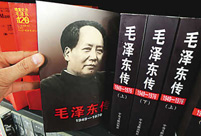 Commemorate 120th birth anniversary of Mao Zedong
Commemorate 120th birth anniversary of Mao Zedong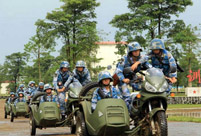 Female soldiers of PLA Marine Corps in training
Female soldiers of PLA Marine Corps in training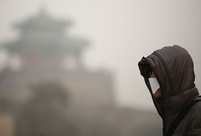 Chinese cities to have a very grey Christmas as smog persists
Chinese cities to have a very grey Christmas as smog persists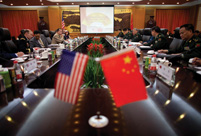 China and U.S. - the national image in each other’s eyes
China and U.S. - the national image in each other’s eyes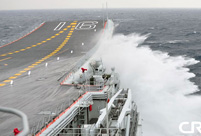 The Liaoning's combat capability tested in sea trial
The Liaoning's combat capability tested in sea trial Chinese pole dancing team show their moves in snow
Chinese pole dancing team show their moves in snow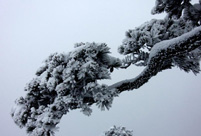 Rime scenery in Mount Huangshan
Rime scenery in Mount Huangshan Ronnie O'Sullivan: My children mean the world to me
Ronnie O'Sullivan: My children mean the world to me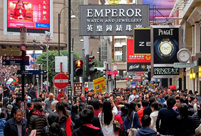 Shopping in Hong Kong: a different picture
Shopping in Hong Kong: a different picture The buzzwords in 2013
The buzzwords in 2013 Top 10 domestic news of 2013
Top 10 domestic news of 2013 Red crabs begin annual migrations in Australia
Red crabs begin annual migrations in Australia Artifacts retrieved from West Zhou Dynasty
Artifacts retrieved from West Zhou Dynasty Aftermath of Volgograd railway station blast
Aftermath of Volgograd railway station blast Fleet hits targets in training
Fleet hits targets in trainingDay|Week|Month